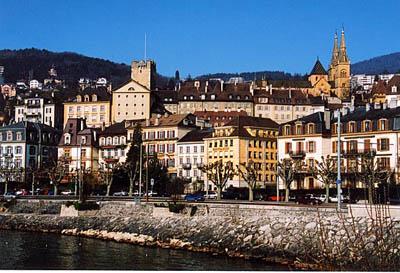Early morning vista of the Dublin docklands. Photo credit: Noel McManus
With Dublin preparing to be City of Science 2012, the city just got another lift today when it came fourth in a in a survey of 40 cities in the Council of Europe/European Commission Intercultural Cities index. Dublin gleaned over cities such as Montreal, Barcelona, Copenhagen and Munich.
But which city came first in the list?
First place went to Neuchatel, while Oslo and Zurich took the second and third spots.
The study evaluated the effectiveness of each city’s intercultural policies in a range of fields, including commitment to integration, public services, conflict resolution, use of public space, governance, language and media.
Robert Palmer, director of Culture, Cultural and Natural Heritage at the Council of Europe, said Dublin City is performing very well in areas like governance, public services, the use of public space and conflict resolution.
“Member cities can learn much from its example in these and other areas. While Dublin can improve in fields like education, language and welcoming, the Intercultural Cities Programme provides an excellent environment to develop these and other skills,” said Palmer.

Switzerland’s Neuchatel, which has taken the top stop in the global intercultural cities list
Speaking this morning, Dublin Lord Mayor Andrew Montague said the results were very welcome news for Dublin. He said they reflect that the intercultural initiatives Dublin City Council and other city authorities around the island of Ireland have been taking are achieving results.
“These initiatives include events such as Dublin Chinese New Year Festival, providing information in different languages in our public libraries and factoring diversity into how we provide public services. In international terms, the survey shows that Dublin is a city that values diversity and is working to combat discrimination and racism,” said Montague.
The results come just two months after Dublin City joined the 25-member Council of Europe/European Commission Intercultural Cities programme in September.
Intercultural Cites work together in developing strategies to manage the integration of migrants and minorities.
Members recognise that diversity is a source of creativity which can generate prosperity and a better quality of life for citizens, said an Intercultural Cites representative this morning.